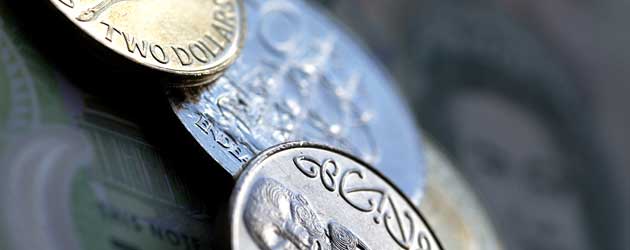
The New Zealand Dollar has weakened against the US Dollar and a number of its other major peers due to data showing that first-quarter inflation met market expectations and reaffirmed the continuation of low interest rates.
The ‘Kiwi’ has risen more than 3% against a basket of trading partner currencies between the December 2012 and March 2013 quarters. A rise that has seen tradable goods prices fall 1.1% in the past year.
Retailers were keen to discount to boost sales volumes, Infometrics economists said, so the prices for household goods, clothing and shoes all fell in the past year.
One of the sharpest drops in the past year was for broadband and cell phone plans, with quality-adjusted prices down 7.2 per cent in the past year, Infometrics said.
Audio-visual and computer equipment prices were down 12% in the year.
But non-tradable inflation was stronger, up 2.4% in the past year, as higher power prices and a rising housing market pushing up home-ownership costs.
Electricity costs were up 5.2% in the past year and rents were up 2.2 per cent in the year.
Statistics NZ said that in the March quarter prices were up for cigarettes and tobacco, food, rents, newly built homes, petrol and medicines in the quarter.
“Inflation was supposed to be exciting, but it wasn’t – it was a very unsurprising report,” said Imre Speizer, market strategist at Westpac Banking Corp in Auckland.
He said the weak Chinese data last week “will resonate for some time” and keep investors nervous about backing Australia and New Zealand, who both trade increasingly with the world’s second biggest economy.
“The immediate outlook is negative,” he said.
Current NZD Exchange Rates
The Euro to New Zealand Dollar (EUR/NZD) exchange rate is trading at 1.554
The Pound Sterling to New Zealand Dollar (GBP/NZD) exchange rate is trading at 1.807
The US Dollar to New Zealand Dollar (USD/NZD) exchange rate is trading at 1.182

Comments are closed.